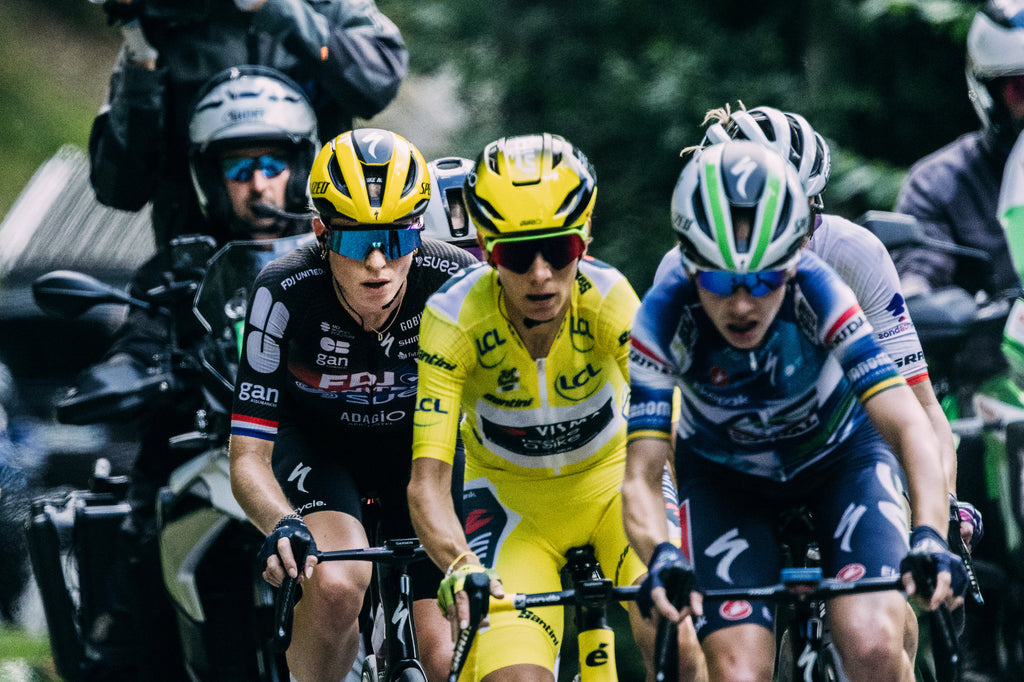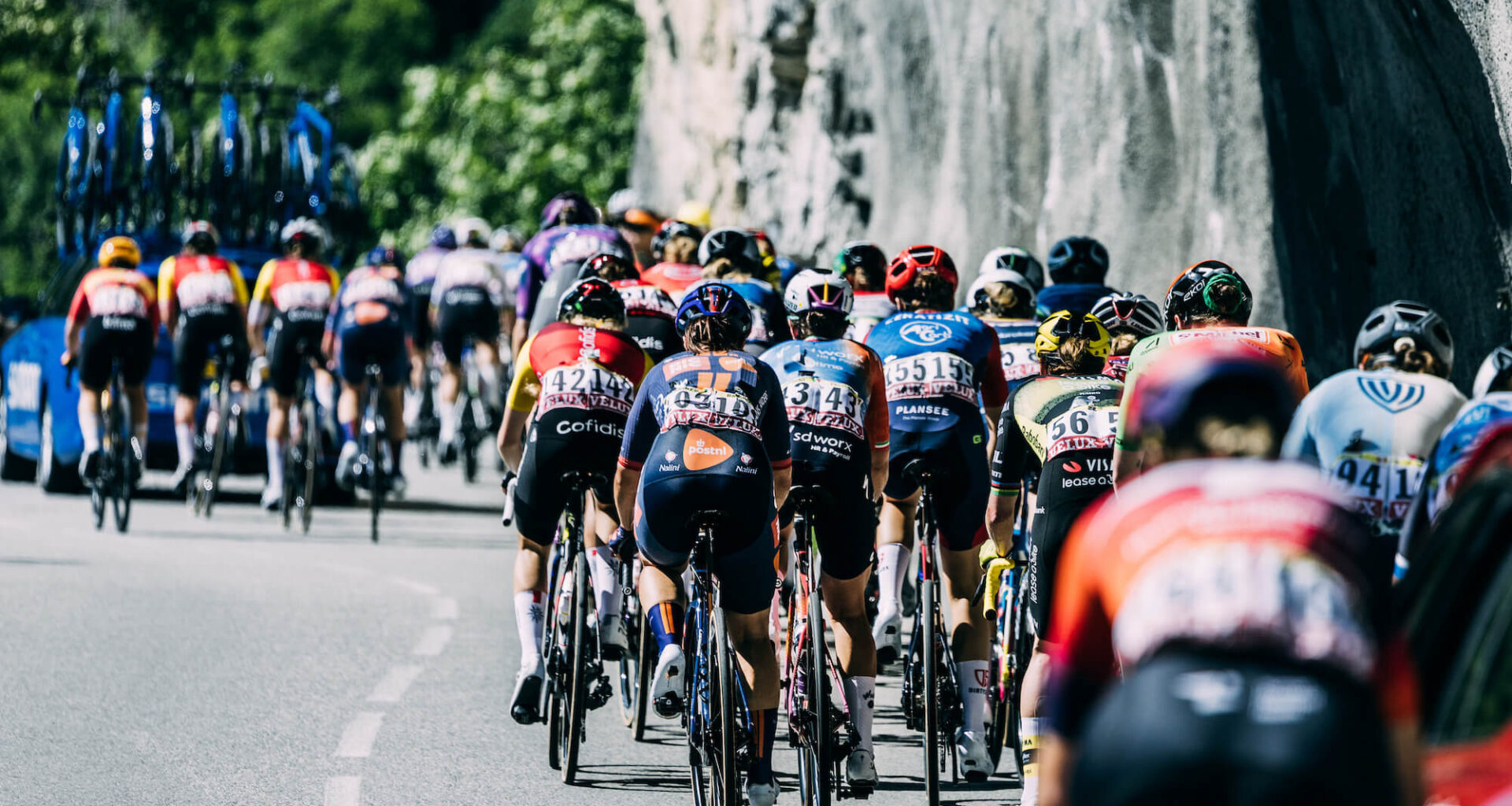Pauline Ferrand-Prévot admitted in her winner’s post-race press conference that her preparation for the Tour de France Femmes avec Zwift had been ‘so hard’ that she wasn’t sure if she would ever do it again. There had been weeks at altitude, the time spent away from friends and family, the razor-sharp focus it takes to achieve a goal like this. One crucial part of trying to win a Grand Tour is getting down to race weight. Being a professional cyclist unavoidably comes with conversations surrounding watts per kilogram and striking the fine balance between being light without losing power.
If you were to look through the comments on the yellow jersey winner’s social media during this Tour de France Femmes, you would notice the repeated references to her weight. Fans have pointed out that Ferrand-Prévot’s physique in July is markedly different to what it was when she won Paris-Roubaix Femmes in April, and concerns have been raised about whether this is portraying a positive image for women’s cycling.
In her press conference after winning the final stage of the Tour, Ferrand-Prévot was asked the tricky question about whether she has considered the example the women’s WorldTour peloton is setting for aspiring young cyclists.
“Everyone prepares the way they want. For Roubaix I was much heavier because I knew I needed to be heavier to have power on the flats,” the French rider responded candidly. “For this race I knew I had to climb for one-and-a-half hours over the Col de la Madeleine [on stage eight] and I tried to make the most of it. You need to adapt to the terrain you have.”
She added that her current weight is only temporary and something that fluctuates throughout the season: “I also know that this shape that I have now I will not keep forever. It’s just for the Tour de France. It’s also my job to be the best as possible. We know this is an endurance sport, and to climb you need to have a [high] watts per kilogram. I made the choice, I worked hard for it.
“I don’t want to stay like this – I know it’s not 100% healthy,” she continued. “But we also had a good plan with the team’s nutritionist and everything is in control. I didn’t do anything extreme and I still had power left after nine days of racing. It’s a tricky subject because you have to find the limit, but I also know I can’t stay like this forever. It’s the choice I made.”

The 33-year-old admitted that she had noticed the influx of comments about her appearance on her social media: “I had quite a lot of complaints on Instagram about it, people saying I was not a good example for young people. But I also think parents should educate their kids and say to them, ‘Pauline is like this because she’s preparing for the Tour de France – it’s not forever’. Everyone needs to understand that it’s also our job to be the best as possible. I just do my job the best way I can and that’s it.”
It was not only the Tour de France Femmes winner who faced questions surrounding the topic of weight in the sport on Sunday afternoon. Demi Vollering, who finished in second place for FDJ-Suez, was asked by Dutch journalists if she believes that losing weight is going to be crucial to beating Ferrand-Prévot in the future.
“I can try to lose more weight, but in the end I don’t want to be skin over bones. Also, I am a lot taller than them, and I can never be as light as [Sarah] Gigante and Pauline,” Vollering responded. “Coming into this Tour de France, we also considered whether I was going to lose more weight or not, but after the Tour de Suisse I got sick and then the biggest priority was to be healthy again, instead of losing weight when sick and then going on altitude.
She noted that conversations around the topic are sensitive, and that while she is comfortable discussing it, this may not be the same for every rider.
“For me it’s not too difficult because I don’t have problems [with her weight]. In my eyes, health is always the most important. I am also proud of my heavyweight because I want to be an example, and I want to lead by example,” the 28-year-old stated. “I just really hope in the future I can win climbing races again with my heavy weight, and that I can show girls that you don’t have to be super super skinny, and that you can believe that if you have the power, you train hard, you can make it, even if you’re heavier.”
Looking ahead to the Tour de France Femmes next year, Vollering said that she would be back to try and win yellow, but that she would not do so by trying to drastically lose weight: “For me it’s also a nice challenge to keep going for big wins in the mountains with the body I have. It’s not difficult for me personally, but I know a lot of girls, and riders in general, struggle with this. For me it’s not the case, but I just really hope that young girls now don’t think they need to be super skinny to ride in the mountains.”
